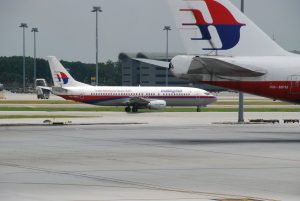In January of this year, Reuters reported that Malaysia Aviation Group, the parent company of struggling national carrier Malaysia Airlines, was nearing a deal with dozens of its largest creditors to restructure around $3.99 billion in debt. Back in 2020, as it became clear that the company would be unable to meet its financial obligations as the pandemic shut down the industry, the airline initially tried to play hardball.
Malaysia Aviation Group has only one shareholder: Khazanah Nasional Berhad, which is Malaysia’s sovereign wealth fund. The firm essentially told creditors during the opening round of negotiations that if they didn’t provide debt relief, the government of Malaysia would simply allow the airline to go bankrupt. I suppose when you are the national carrier of a country and your only shareholder is the government of that country, this is a credible threat. Apparently, it worked. A deal was approved by a British court at the end of February, and Khazanah Nasional quickly injected an additional $890 million into the airline.
For obvious reasons, the last year has been rough on airlines. And it doesn’t help that the industry is dangerously reliant on debt, primarily to aircraft leasing companies, meaning any cash flow disruption is essentially an existential crisis. But Malaysia Airlines was in trouble long before it could hang the blame on a once in a generation pandemic. The carrier was taken over by Khazanah Nasional back in 2014 as its finances worsened in the wake of several high-profile crashes.
But the government of Malaysia subsequently struggled to turn things around, posting losses in 2017 and 2018, and January’s restructuring was just one in a long line that have taken place over the years. All of which begs the question of why the state even wants to own a money-losing asset saddled with large and possibly unpayable debts in the first place? If ever there was a time to cut your losses in the airline industry, now would seem to be it.
This gets right to the heart of the complex and often contradictory relationship between private and public capital in a modern globalized economy, and the nebulous role of sovereign wealth funds which have a foot in each camp. Khazanah is a state-owned investment fund. Its purpose is to invest the accumulated wealth of the nation in order to generate returns for its shareholders, the people of Malaysia. But it’s also wielded as a tool of economic statecraft and development, and not merely as a profit-maximizing vehicle.
When Khazanah delisted the carrier from the Malaysian stock exchange in 2014 and took it over, the stated purpose was to make “our national airline be profitable as a commercial entity and to serve its function as a critical national development entity.” But these two goals are not always compatible. Sometimes it benefits the strategic interests of the state to own an asset even if it loses money, particularly in critical sectors like public utilities and transportation. That seems to be the case with Malaysia Aviation Group.
Malaysia’s domestic airline industry is dominated by two airlines: the national carrier and the low-cost giant AirAsia. If Khazanah allowed Malaysia Airlines to go under, the state would be ceding nearly the entire domestic airline market to a low-cost carrier which would then posses enormous power over price-setting and other important considerations. And AirAsia is ultimately responsible to its shareholders, which means the company would be motivated by what is best for its bottom line, not the strategic or economic interests of the state.
Therein lies the odd calculus behind why a sovereign wealth fund might continue to prop up an unprofitable company even as opportunities arise to exit the sector. Khazanah might not be generating big (or any) dividends from its ownership of Malaysia Aviation Group, but it generates other more intangible returns such as allowing the state to maintain a measure of control in a critical industry and preventing AirAsia from cornering the market. Whether that is really the most appropriate function of a sovereign wealth fund is an open question, and an important one to grapple with as countries increasingly experiment with different ways of integrating the state into the market not merely as a regulator, but as an active participant.

































